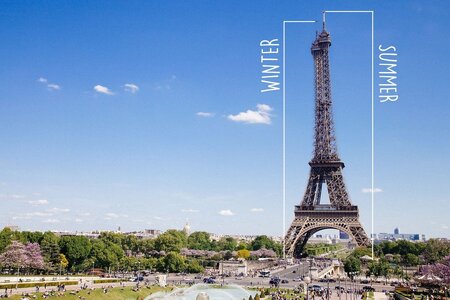The Original Gay Porn Community - Free Gay Movies and Photos, Gay Porn Site Reviews and Adult Gay Forums
-
Welcome To Just Us Boys - The World's Largest Gay Message Board Community
In order to comply with recent US Supreme Court rulings regarding adult content, we will be making changes in the future to require that you log into your account to view adult content on the site.
If you do not have an account, please register.
REGISTER HERE - 100% FREE / We Will Never Sell Your InfoTo register, turn off your VPN; you can re-enable the VPN after registration. You must maintain an active email address on your account: disposable email addresses cannot be used to register.
You are using an out of date browser. It may not display this or other websites correctly.
You should upgrade or use an alternative browser.
You should upgrade or use an alternative browser.
Little known facts
- Thread starter Alistair
- Start date
Just before the first episode of 'WKRP In Cincinnati', Richard Sanders (the actor who portrayed the hilariously-funny Les Nesman) smacked his head and split his forehead open. He was treated for the injury and began shooting with a rather large bandage on his forehead. As the filming progressed, the bandage became smaller. It was reduced once more to a Band-Aid at the end of filming. No mention of the wound was ever made but, for the rest of the series, Richard Sanders wore a Band-Aid on various parts of his body, but always visible for those who looked for it.
Wasn't that MOST of his films.Alfred Hitchcock appears somewhere in all of his films.
When viewed from the Earth, the Moon appears almost the same size as Australia appears when viewed from the Moon.
The Christmas song "Do You Hear What I Hear?" is not really about the birth of Jesus but in response to the Cuban Missile Crisis in 1962 when the world faced nuclear destruction.
- Joined
- Oct 9, 2004
- Posts
- 59,750
- Reaction score
- 107,850
- Points
- 113
Not actually in response to, but rather in light of. And, yes, it is based on The Nativity.The Christmas song "Do You Hear What I Hear?" is not really about the birth of Jesus but in response to the Cuban Missile Crisis in 1962 when the world faced nuclear destruction.
Do You Hear What I Hear? - Wikipedia
- Joined
- Jan 15, 2006
- Posts
- 122,824
- Reaction score
- 4,067
- Points
- 113
In its original context, a basket case was a soldier who had been so badly injured that he had to be carried from the battlefield in a barrow or basket, usually with the implication that he had lost all four of his limbs.
- Joined
- Jan 15, 2006
- Posts
- 122,824
- Reaction score
- 4,067
- Points
- 113
The original meaning of "shell shock" was literal, referring to someone so close to an exploding shell that all or most sensation was lost on the parts of the body facing the shell.
- Joined
- Jan 15, 2006
- Posts
- 122,824
- Reaction score
- 4,067
- Points
- 113
The word "strafe" came from the WWI German propaganda phrase "Gott Strafe England!" or “God punish England". It was printed everywhere in Germany, on posters, newspaper advertisements, even postage stamps. Allied troops adopted the word to mean an attack with heavy fire, especially machine guns, and it later became associated with the machine gun fire from airplanes.
Araucaria
JUB 10k Club
Generally assumed or expected to be so, little known as a "fact"...

Probably true everywhere, Barcelona just happened to be the place somebody decided to keep track of the data.
fabulouslyghetto
Kween of Hot Topics
I was born on the south side of Chicago. 

Oh, you mean air quality is everywhere just as (not more or less) trashy as in BCNProbably true everywhere, Barcelona just happened to be the place somebody decided to keep track of the data.
Araucaria
JUB 10k Club
^For the benefit of the other JUBBERS, google translate renders the meme belamyi posted from the original Catalan (not Spanish or Castilian) as "In the metropolitan area of Barcelona, there are more and more serious heart attacks on the days with the highest pollution." Hence my remark about it probably being true everywhere.
- Joined
- Jan 15, 2006
- Posts
- 122,824
- Reaction score
- 4,067
- Points
- 113
I
Except for a visit to an experimental school near Gary, Indiana, I think that's the closest I've ever been to Chicago's south side -- and the snow was so bad I couldn't even see the ground as we flew over.
I flew over south Chicago once. Coming in from Portland, the plane was supposed to land at O'Hare, but half an hour out the captain announced that O'Hare and Midway were in white-out conditions and we were being diverted. A few minutes later he announced that the Chicago-Gary airport was also experiencing whiteout conditions. Indianapolis was stacked too tight due to the diversions from the Chicago area, and we ended up landing at some obscure airport with a barely-large-enough runway that wasn't quite in whiteout conditions -- one of those airports where the plane doesn't connect to a gate but vehicles come out to meet it. The pilot was amazing, landing us at the extreme end of the runway so we'd have enough length to stop. Almost the moment we were on the ground there were emergency vehicles racing along with us, which was kind of exciting until thanks to a crosswind the plane rotated and we were sliding down the runway sideways. Somehow the pilot brought us to a halt just yards from the other end of the runway, and the moment we were stopped they popped the emergency exit slides and started funneling passengers onto them. I happened to be in a seat near a door so along with a few others I got to exit onto a rolling stairway like politicians use to make photo-op exits from planes. At the bottom of the steps there was a bus we went straight into; it held maybe two dozen people and zoomed us over to the terminal building; we got unloaded maybe twenty yards from the terminal and dashed across the gap.I was born on the south side of Chicago.
Except for a visit to an experimental school near Gary, Indiana, I think that's the closest I've ever been to Chicago's south side -- and the snow was so bad I couldn't even see the ground as we flew over.
- Joined
- Jan 15, 2006
- Posts
- 122,824
- Reaction score
- 4,067
- Points
- 113
^For the benefit of the other JUBBERS, google translate renders the meme belamyi posted from the original Catalan (not Spanish or Castilian) as "In the metropolitan area of Barcelona, there are more and more serious heart attacks on the days with the highest pollution." Hence my remark about it probably being true everywhere.
That makes me think of a visit to Monterrey, Mexico: the air quality was atrocious, so we only stayed long enough to see a few sights. Back then for someone living in Monterrey their whole life life expectancy was pegged at 48. A dozen years later after cleaning up the worst pollution offenders I heard it was up to 54, and most recently I saw it was 68, a bit behind Mexico's overall figure.
Back then the big killer was lung disease, but there were probably more heart attacks on bad days.




